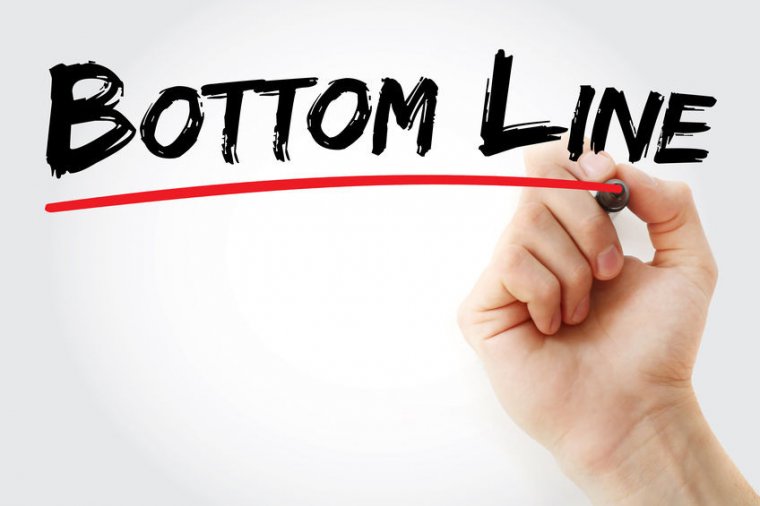
In order to recover from sexual compulsion, there must be a bottom line definition of what sobriety is to you. Bottom line behaviors is a predetermined, concrete list of behaviors identified by the individual in recovery. These behaviors have been identified as harmful to the individual’s recovery, and the individual has decided he/she no longer wants to engage in. Identifying your bottom lines is a useful way for recovering individuals to monitor their behaviors regularly. Any behaviors the individual engages is in, that fall outside of the predetermined boundaries is considered a slip or a relapse.
It’s important to be as clear and thorough as possible when identifying your bottom line behaviors. The definition of sobriety from sex compulsion is much more complex and multi layered than recovery from an compulsion such as alcohol. For an alcoholic, the bottom line is to refrain from drinking altogether, and never again, end of story. Identifying and developing a recovery plan from sex compulsion can be more complicated.
The goal is not to abstain from sex or love permanently. It’s not healthy or realistic to expect an individual to stop having sex and relationships forever; similar to eating disorders, the plan is not to stop eating. The goal is to have a healthy relationship with sex and love. Additionally, there could be a plethora of behaviors contributing to the compulsion, and vary per person. This is where identifying your bottom lines can are helpful. Bottom lines are the small and large behaviors that lead from one unhealthy decision to another as you walk the path (or your cycle) to acting out sexually.
Bottom line behaviors are different for everyone. Each person’s circumstances are different, as well as well what triggers their sexual compulsion. Typical bottom line behaviors include: having sex outside of marriage; paying for sex; anonymous sex; going to a strip cub; going to a massage parlor, etc. These are your more obvious, larger bottom line behaviors, and are typically easier to identify when in the early stages of sex compulsion. The smaller, more difficult to identify behaviors can take time to see and acknowledge as part of the problem. Such behaviors are often triggers to acting out. For example, taking a particular drive home to purposely drive past your favorite strip club (even if you tell yourself you’re not going to go in), keeping phone numbers of friends and acquaintances connected to your compulsion (friends from strip clubs, names and numbers of prostitutes, or parlors) or keeping memberships to your favorite pornographic sites or escort sites, etc.
Starting the process of identifying your bottom line behaviors is one of the primary steps and an essential piece of beginning your sexual recovery. Meeting with a therapist who has experience treating individuals with sexual compulsion can help you explore and identify where to start in changing your behaviors and developing a plan. To help give you a jump start in your healing process, or to help you assess where you are in your sexual compulsion, complete the following exercise.
Exercise to help you define your sobriety plan:
Take a pen and blank piece of paper. Make two columns. In column one, identify the behaviors you want to stop. This includes your bottom lines, as well as anything else that may compromise your goals and recovery. A way to help you do this is to assess what has become unmanageable in your life. Where do you feel out of control? Work, family or romantic relationships? Finances? Is there something that you are doing (or not doing) that seems to be a preoccupation or take priority over things that once were significant to you?
In column two, identify the behaviors you want to add to your life. This can include: attending weekly support group, coming home in time for dinner with family, opening up to my spouse more, attending church, developing a new hobby, implementing date night with your spouse, etc.
Remember it’s okay if your bottom lines change slightly throughout your recovery process. You might not be aware of all of your bottom lines so early in the recovery process. As you continue your recovery and become more sober and clear minded, you will likely develop more insight and awareness of what impacts your sexual compulsion and how.
Sex Compulsion Treatment in Philadelphia / Sex Compulsion Recovery Articles
- What Is A Sex Compulsion?
- Identifying Your Bottom Line Behaviors
- When To Use An Intervention For Treating A Sex Compulsion
- Warning Signs of A Sex Compulsion
- Telling Your Spouse About A Sex Compulsion
- The Shame Of Sex Compulsion
- Sexual Compulsion Triggers
- Do I Really Want To Recover From A Sex Compulsion?
- Imago Therapy And Sex Compulsion
- Sex Compulsion Obstacles
- Sex Compulsion and Work
- Masturbation At Work
- Making Amends Sex Compulsion
- Intimacy and Authenticity
- Depression and Sex
- High Sex Drive Or Sex Compulsion?
- Cheating?
- Family Roles In Sex Addicted Cycles
- CoAddict
- Getting Your Partner On Board With Your Vacation From Sex
- Sex Compulsion Quiz
